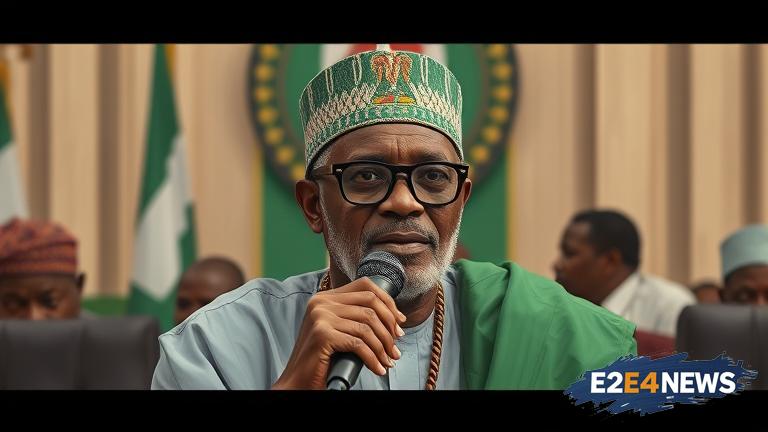Governor Samuel Ortom of Benue State has publicly expressed his opposition to a northern presidency in 2027. He believes that the southern region of Nigeria should be allowed to complete their eight-year term in the presidency. Ortom made this statement during a media briefing, where he emphasized the importance of adhering to the principles of fairness and equity. The governor’s comments come at a time when the debate about zoning and power rotation is gaining momentum in the country. Ortom argued that the north has had its fair share of the presidency and that it is now time for the south to take the reins. He also stated that the southern region has competent and capable leaders who can steer the country in the right direction. The governor’s stance has been seen as a bold move, as it challenges the traditional dominance of the north in Nigerian politics. Ortom’s comments have sparked a heated debate, with some hailing him as a champion of fairness and others criticizing him for being divisive. The issue of zoning and power rotation has been a contentious one in Nigeria, with many arguing that it is essential for promoting national unity and stability. Ortom’s opposition to a northern presidency in 2027 is likely to have significant implications for the country’s political landscape. The governor’s statement has also been seen as a reflection of the growing tensions between the north and the south. Despite the challenges, Ortom remains committed to his stance, emphasizing that it is essential to prioritize fairness and equity in the country’s political process. The governor’s comments have also been praised by some southern leaders, who see his stance as a victory for their region. However, others have criticized Ortom for being too simplistic in his approach, arguing that the issue of zoning and power rotation is more complex than he suggests. As the debate continues to rage on, it remains to be seen how Ortom’s stance will impact the country’s political future. The governor’s opposition to a northern presidency in 2027 is a significant development that will likely have far-reaching consequences for Nigerian politics. Ortom’s commitment to fairness and equity is admirable, but it is essential to consider the complexities of the issue and the potential implications of his stance. Ultimately, the decision on who becomes the next president of Nigeria will depend on a variety of factors, including the outcome of the elections and the negotiations between different political stakeholders.
